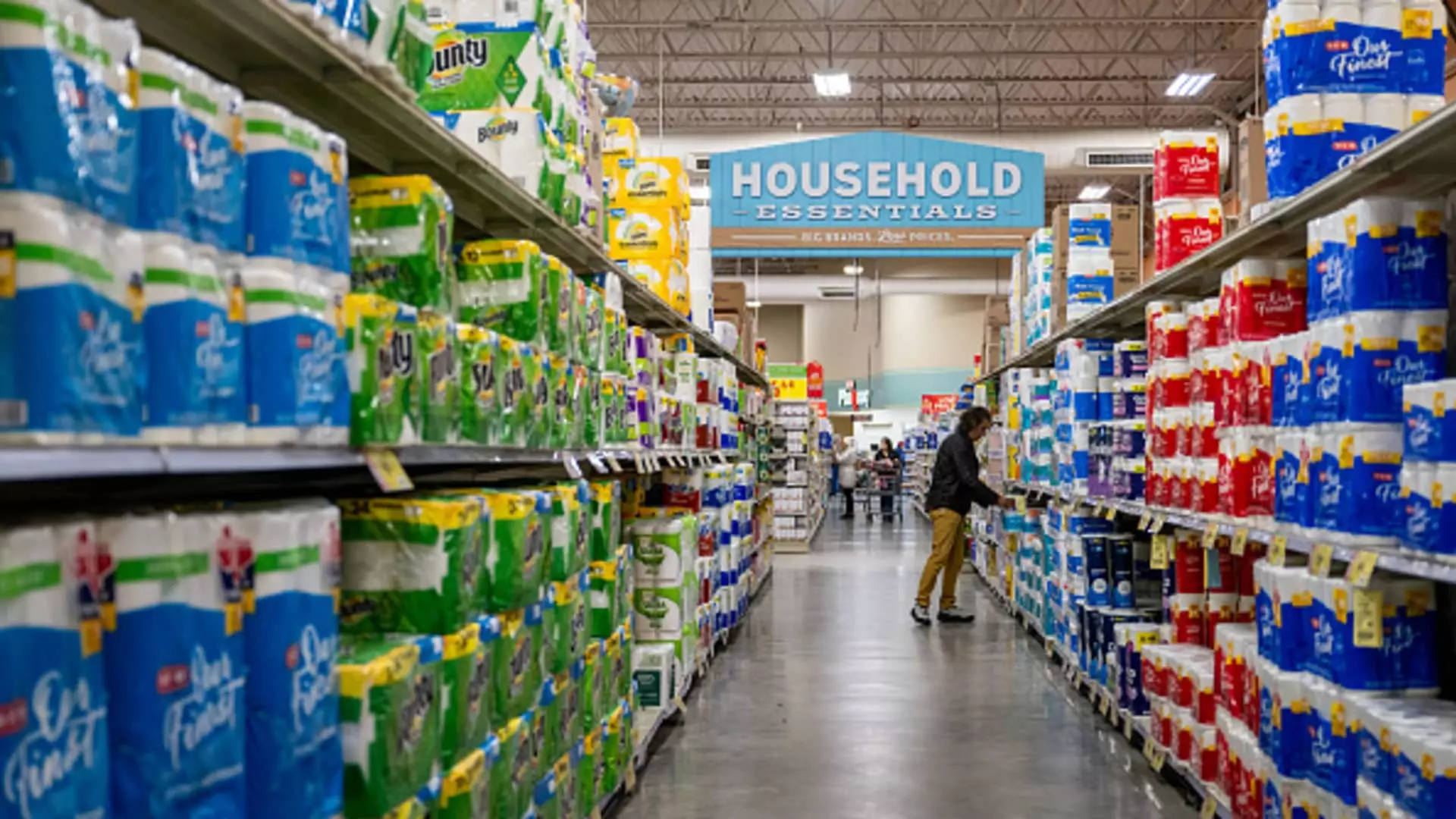In a bid to champion the “America First” agenda, the Trump administration’s newly imposed tariffs threaten to unravel the very fabric of everyday life for countless consumers. Despite these tariffs being marketed as a means to revitalize domestic manufacturing and protect American jobs, the reality is starkly different. They will lead to increased costs for essential products—coffee, vanilla, toilet paper—that are intrinsic to our daily routines. This strategy seems optimistic at best, but ultimately misguided, as it ignores the complexities inherent in today’s interconnected global economy.
A rise in prices is not just a possibility; it’s an inevitability. For instance, the Consumer Brands Association, which represents titans like Coca-Cola and Procter & Gamble, warns that while the intent may be noble, the implications are very dire. The irony lies in the fact that many ingredients and materials we take for granted cannot be sourced domestically due to climatic and agricultural limitations. In a country that prides itself on its agricultural prowess, the constraints of nature remind us that we cannot do it all ourselves.
The Domino Effect on Consumers
At the core of the issue is an intersection of economic policy and consumer welfare. As tariffs are applied on imports, consumers will inevitably feel the pinch in their wallets. Bananas, coffee, and spices will see price hikes as these goods enter the U.S. from countries which are now subject to tariffs. Take Madagascar, which supplies a vast majority of vanilla to the U.S.; it will face a staggering 47% tariff. Such steep increases will not only affect prices at checkout but also quietly transform the way we view and purchase these staples.
This scenario extends beyond just food—it weaves its way into inedible household goods too. Everyday items like toilet paper, diapers, and lotions will also bear the brunt of these tariffs. It’s not just about a slight bump in prices; it’s about how these changes impact the cost of living for average Americans. Families with tight budgets will face impossible choices when they no longer can afford the essentials—forcing people to compromise on health, hygiene, and quality of life.
Failure to Recognize Market Realities
The perspective of the administration seems nostalgically fixated on a bygone era when American products ruled the marketplace without dependency on imports. However, this perspective is incredibly detached from the current realities of the agricultural and manufacturing sectors. The U.S. has become increasingly reliant on foreign sources for ingredients and components that are not just a luxury but are required to maintain the standards and variety consumers now expect.
The notion that we can solely rely on domestic production without considering climatic conditions is a naïve oversimplification. With U.S. oat production dwindling in the face of modern agricultural shifts, relying on Canadian sources to fill the gap is a testimony to how critical imports have become. This doesn’t even scratch the surface of the supply chain complexities within a globalized economy that has both efficiencies and dependencies built into it.
The Stock Market’s Mixed Signals
Interestingly, while the market reacted with initial fear to the tariff announcements, stocks of consumer staple companies actually surged. Procter & Gamble’s shares rose over 1%, and Coca-Cola saw a 2% increase. This contradictory behavior reflects a collective investor mindset that views basic household products as a safe haven amidst unpredictable economic conditions. Could it be that the very companies facing increased costs will be able to pass these burdens onto consumers while insulating themselves financially? If this is the case, then the tariffs do nothing but shift financial pain from corporations directly onto the American public, ultimately enriching shareholders at the expense of ordinary citizens.
There is a disheartening disconnect in this landscape: consumers are expected to embrace a narrative of national pride that in practice results in punishing financial consequences. While nationalistic fervor might sound good on paper, the harsh reality for those in the throngs of economically vulnerable positions is anything but patriotic. The discourse surrounding tariffs needs to shift from an oversimplified narrative of protectionism to a more nuanced understanding of economic interdependence—something that serves not only corporate interests but the American people as well.



Leave a Reply